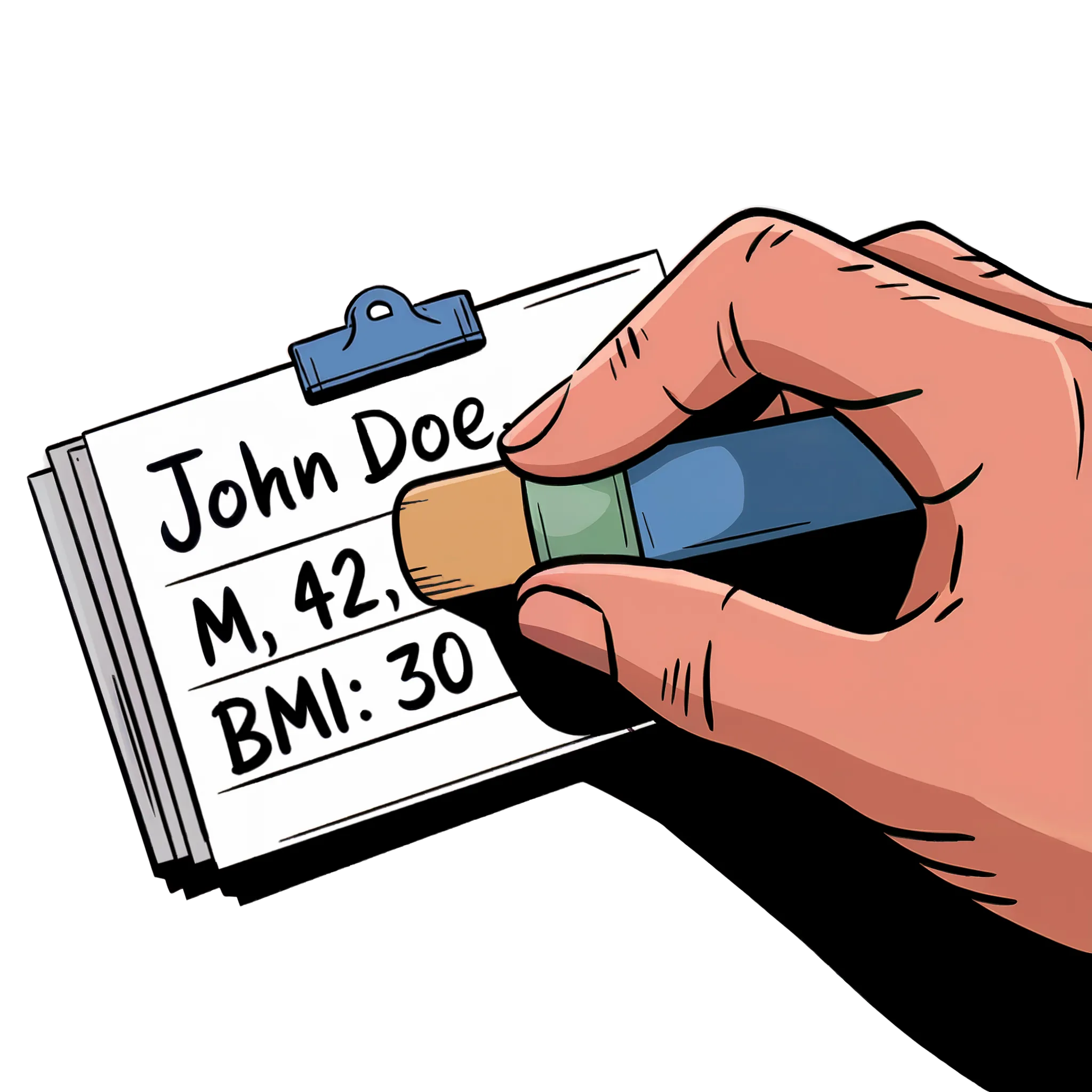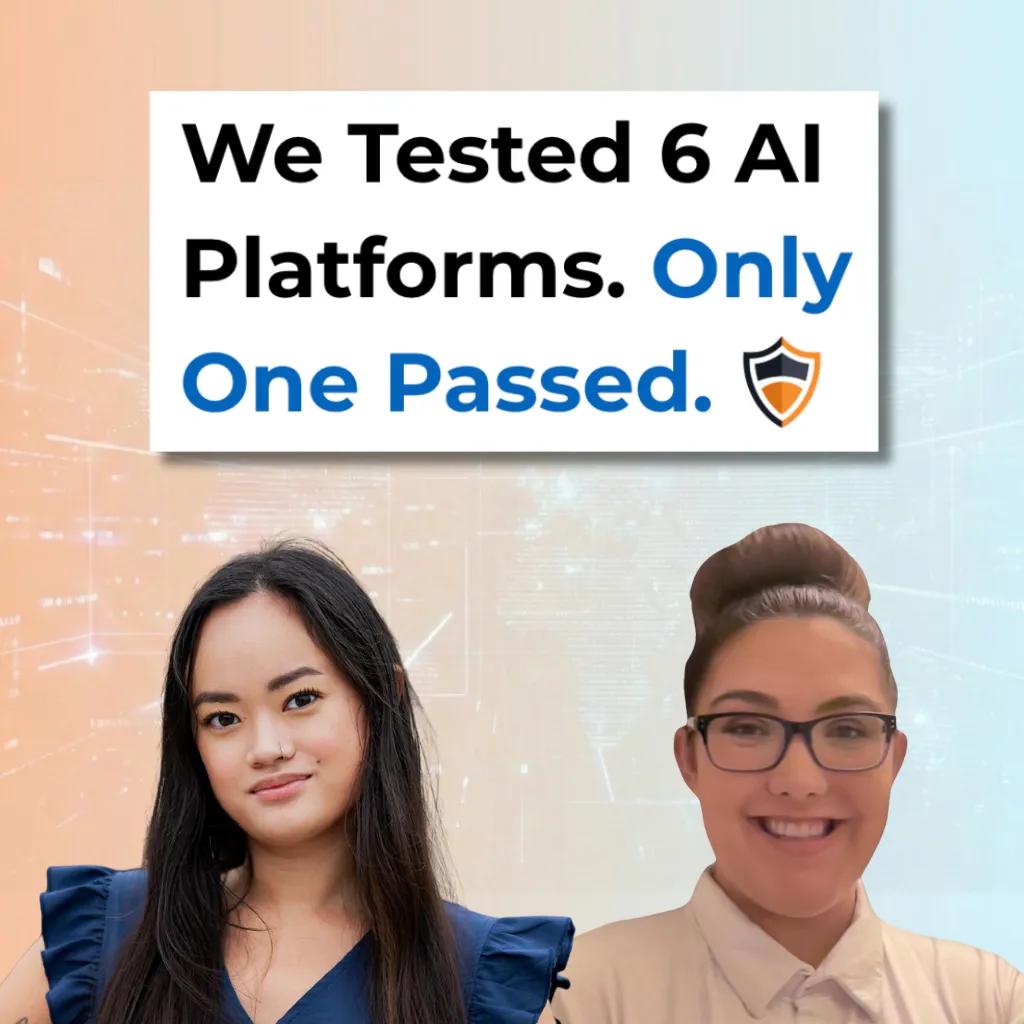Secure data sharing is essential for advancing medical research, improving quality of care, and supporting public health initiatives. Healthcare providers need HIPAA-compliant AI solutions that can help them share valuable medical data while ensuring patient confidentiality and regulatory compliance with privacy laws like HIPAA, PIPEDA, and APP.
Why Healthcare Organizations Need AI for Data Anonymization
Data anonymization bridges the gap between healthcare data sharing and privacy protection. By leveraging AI-powered de-identification tools, healthcare providers can efficiently remove personally identifiable information (PII) and protected health information (PHI) while maintaining the clinical value of their medical records.
Advancing Medical Research Through Secure Data Sharing
Medical researchers rely heavily on de-identified patient data to study diseases, evaluate treatments, collaborate with colleagues, and develop new therapies. Through AI-driven anonymization, hospitals and clinics can securely share patient records with research institutions without compromising HIPAA compliance. This capability is particularly valuable for rare disease research, where access to diverse patient data drives medical breakthroughs.
Supporting Mental Health Research and Treatment
Mental health professionals face unique challenges when sharing valuable clinical insights while protecting sensitive patient information. Using HIPAA-compliant AI tools, therapists and psychiatrists can efficiently contribute anonymized case studies, treatment outcomes, and therapeutic approaches to advance mental health research and improve patient care. This secure data sharing enables professionals to collaborate on complex cases, develop more effective treatment strategies, and contribute to the growing body of mental health research while maintaining strict patient confidentiality.
Enhancing Quality Improvement Through Case Analysis
Healthcare organizations frequently need to share specific patient cases for peer review and quality improvement initiatives. For example, a hospital's quality improvement team might need to analyze a complex surgical case that had unexpected complications. Using AI-powered anonymization, providers can share detailed case information - including pre-operative assessments, surgical notes, and post-operative care details - while protecting patient privacy. This enables thorough analysis of clinical decision-making and outcomes, facilitating meaningful discussions about potential improvements in care protocols without compromising patient confidentiality.
Supporting Medical Education and Training
Teaching hospitals and medical schools can leverage AI-powered anonymization to create valuable educational resources from real patient cases. By carefully de-identifying patient records, healthcare institutions can build comprehensive case libraries for training medical students, residents, and continuing education programs. This approach maintains the clinical value of real-world examples while ensuring patient confidentiality in educational settings.
Facilitating Legal Reviews and Fraud Detection
Healthcare organizations often need to share patient records for legal reviews, audits, or fraud investigations. AI-driven anonymization helps providers securely share relevant medical documentation with legal teams, auditors, and investigation units while maintaining HIPAA compliance. This enables thorough review processes without compromising patient privacy or violating regulatory requirements.
The Critical Role of Provider Review in AI Anonymization
While AI significantly streamlines the anonymization process, healthcare provider oversight remains essential. Medical professionals must carefully review AI-generated outputs to ensure:
- Complete removal of all direct and indirect patient identifiers
- Preservation of clinically relevant information
- Appropriate handling of unique or complex cases
- Consistency in de-identification across related documents
- Verification that anonymized data maintains its utility for intended purposes
This human oversight, combined with AI efficiency, creates a robust system for secure data sharing while maintaining professional standards and regulatory compliance.
BastionGPT: HIPAA-Compliant AI for Healthcare Data Security
BastionGPT provides healthcare providers with an advanced AI solution for efficient, accurate data de-identification. Our platform combines generative AI technology with healthcare-specific security features to ensure both data utility and HIPAA compliance.
Advanced Security Features
- AI-Powered PHI Detection: Our system uses large language models to identify both direct and indirect identifiers in electronic medical records (EMR).
- Contextual Analysis: Healthcare-specific AI algorithms recognize PHI within complex clinical narratives where traditional de-identification tools might fail.
- Intelligent Data Processing: Rather than simple redaction or masking, our AI implements -sophisticated anonymization techniques that preserve clinical relevance.
Implementing AI for Medical Records Anonymization
Healthcare providers can utilize BastionGPT's HIPAA-compliant AI capabilities using this specialized prompt:
You are a medical records specialist, help me anonymize the following patient chart while preserving the medical relevance.
Replace all Protected Health Information (PHI) with bracketed placeholders:
PHI to remove and replace: Names (patient, family, providers) → [name]
Dates → [date]
Ages → [age]
Sex → [sex]
Geographic data smaller than state → [location]
Contact info (phone, email, addresses) → [contact]
Account/medical record numbers → [ID]
Vehicle/device identifiers → [device_ID]
URLs/IP addresses → [URL]
Biometric identifiers → [biometric_ID]
Photos/comparable images → [image]
Any other unique identifying characteristics → [identifier]
After anonymizing, verify no PHI remains exposed.
Example of AI-Driven De-identification
Original Medical Record: "John Doe, a 42-year-old male from Los Angeles, was admitted to Cityview Hospital on March 10, 2023, for a cardiac evaluation. He is an executive at a biotech firm in Silicon Valley. His provider, Dr. Smith, prescribed a stress test."
AI-Anonymized Version: "[name], a [age]-year-old [sex] from [location], was admitted to [location] Hospital on [date] for a cardiac evaluation. He works in the biotech industry. His provider, [name], prescribed a stress test."
The Future of AI in Healthcare Data Security
The advancement of medical science depends on our ability to share and analyze healthcare data securely. BastionGPT's HIPAA-compliant AI technology helps healthcare providers contribute to this future while maintaining the highest standards of patient privacy and regulatory compliance.
By combining AI-powered medical transcription anonymization with healthcare professional oversight, organizations can confidently share valuable clinical data for research, quality improvement, and public health initiatives. This comprehensive approach ensures that patient privacy remains protected while enabling the collaborative efforts that drive medical progress.
Ready to explore how HIPAA-compliant AI can enhance your organization's data security?
Start a free 7-day trial of BastionGPT
If you have more questions or would like to connect – you can reach out at:
- Email: [email protected]
- Phone: (214) 444-8445
- Schedule a Chat: Book a Meeting




.png)
.png)